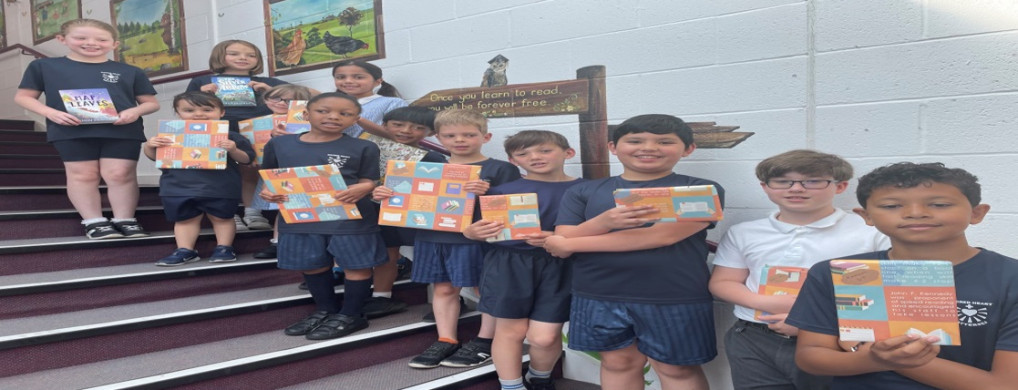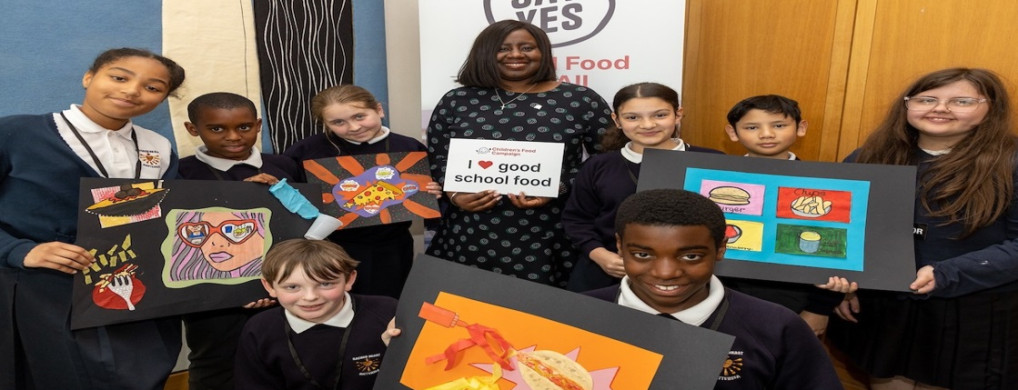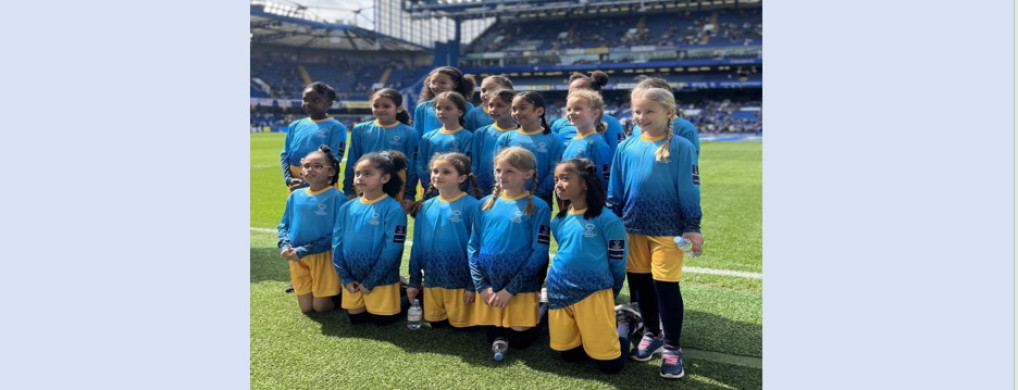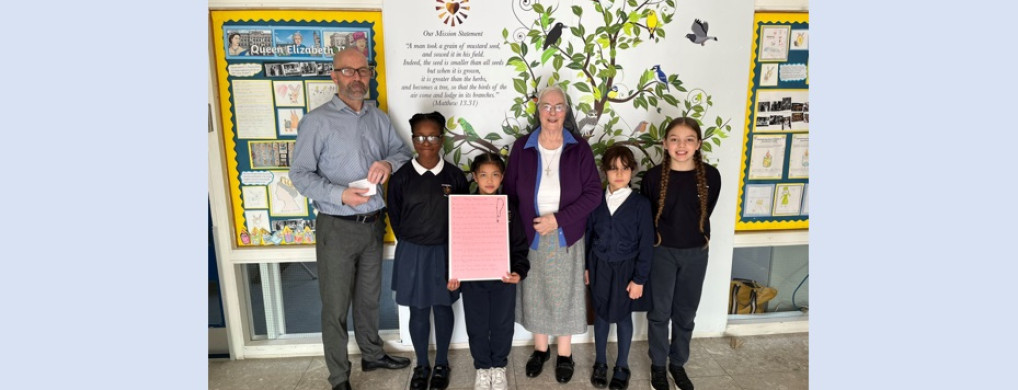English at Sacred Heart Primary School
At Sacred Heart Primary School, Battersea, we offer a high-quality education in English, in line with the overarching expectations of the National Curriculum. We know that proficiency in reading, writing and spoken language is fundamental to our pupils’ education, and that it is vital for their success. Our aim is that through our curriculum, an enthusiasm for language and communication is fostered for life.
We model and promote excellent standards of spoken and written language by providing a rich and stimulating learning environment, where:
- Speaking and listening, reading and writing are enjoyed and valued by all.
- Pupils are exposed to a rich, diverse, and varied reading programme of study, fostering an enthusiasm for language and communication by linking relevant, engaging texts to an assortment of purposeful writing tasks and wider curriculum topics and themes.
- Pupils are encouraged to construct and convey meaning, both in both speech and writing, of factual, imaginary and personal experiences.
- Pupils are given opportunities to become confident, competent and expressive users of the language with a developing knowledge of how it works
- Pupils are encouraged to be reflective users of language, able to analyse and evaluate its main features.
- All pupils are suitably challenged and all needs are catered for, via high quality teaching, differentiated for individuals where required, to ensure they are able to achieve their full potential.
Reading
We firmly believe that a love of reading is the cornerstone to developing a lifelong learner. Our intent is that all our pupils, regardless of background or additional needs, will learn to read fluently and confidently, enjoying widespread reading for meaning and for pleasure.
Our aim is that our pupils will acquire a wide vocabulary, an understanding of grammar and knowledge of linguistic conventions for reading, writing and spoken language. Through the books we share and those the pupils read themselves, they will learn to appreciate our rich and varied literary heritage.
The National Curriculum programmes of study for reading consists of two dimensions: Language Comprehension and Word Reading.
Language Comprehension
As discussed in the Dfe’s Reading Framework, we recognise the importance of talk and stories, and the critical links between these, especially the role stories play in developing young children’s vocabulary and language. As a school, we are constantly striving to expand children’s store of words through talk and deeper discussion throughout the day, within the curriculum and,
in particular, through stories. Listening to and talking about stories and non-fiction develops children’s vocabulary, because they meet words they would rarely hear or use in everyday speech. Understanding vocabulary is vital for comprehension and so also for wider learning and progress. It is a pivotal reading domain that lies at the core of our reading comprehension lessons at Sacred Heart.
Good comprehension not only draws from linguistic knowledge (vocabulary and grammar), but also knowledge of the world.
All Sacred Heart pupils are encouraged to read widely across both fiction and non-fiction texts to develop their knowledge of themselves and the world they live in, to establish an appreciation of reading, and to gain knowledge across the curriculum.
We also place emphasis on the role of poetry, rhymes and songs in attuning children to the sounds of language.
Word Reading and Spelling
The National Curriculum is designed to make sure that all children are able to read and write fluently by the time they leave year 6, so that they can make progress at secondary school. A vital element of this is the early and successful teaching of phonics.
Understanding that the letters on the page represent the sounds in spoken words underpins successful word reading. Children’s knowledge of the English alphabetic code – how letters or groups of letters represent the sounds of the language – supports their reading and spelling. Skilled word reading involves both the speedy working out of the pronunciation of unfamiliar printed words (decoding) and fast recognition of familiar printed words. Once pupils have a secure knowledge and understanding of the alphabetic code, they will be able to read fluently and with expression, and begin to learn spelling patterns that occur in the English language.
The teaching and learning of phonics using a systematic synthetic programme is paramount and begins in the early years, continuing into KS1 and beyond if necessary. At Sacred Heart, we have adopted the LWLS (Little Wandle Letters and Sounds) SSP (Systematic Synthetic Phonics) programme to ensure that we have the most consistent, effective approach for teaching pupils to decode.
Our word reading progression then moves on to further developing the key skills of fluency: prosody and automaticity (reading automatically and with expression), ensuring that a strong bridge is built between the skills of decoding and comprehension. Opportunities to develop these key skills are addressed via fluency strategies such as modelled reading, paired reading and echo reading. Reading fluency is a key component in students’ wider learning capacity and confidence
Our spelling progression at Sacred Heart follows the NC programme of study, with a focus on learning year group specific word patterns, common exception words and statutory word lists (for years 3&4 and 5&6). Whilst phonic knowledge continues to underpin spelling after key stage 1, teachers still draw pupils’ attention to GPCs that do and do not fit in with what has been taught so far. Pupils are also taught to understand the role of morphology (word structure) and etymology (word origin) and the relationships between meaning and spelling, where these are relevant.
Children at risk of falling behind in reading
We know that pupils who fail to learn to read early on start to dislike reading. We understand that pupils need to keep up with their peers rather than be helped to catch up later, at a point when learning in the wider curriculum depends so much on literacy. At Sacred Heart, where pupils make insufficient progress and are reading below what is expected for their age, extra efforts and catch up interventions are made to provide them with additional practice and support.
Writing
Our writing curriculum is carefully and thoughtfully structured, and follows the NC programme of study. It is supported by Wandsworth Local Authority plans, which break down the NC into year group aims and objectives. It is then further enhanced by personalised punctuation and text type progressions (which combine NC expectations with key content associated with Alan Peat’s ‘Exciting Sentences’-see below)
Our programme covers a broad range of both fiction and non-fiction genres and uses a range of stimuli, linking to reading texts, local context, school trips and visitors, current affairs, film, multimedia/technology and a range of cross-curricular content, e.g themes studied in History, Geography, PSHE, R.E, Science where and whenever possible. Our aim is that through well-planned, motivational, relatable activities, our pupils will develop into competent, creative writers who can write clearly and coherently, for a range of purposes, and for a variety of audiences, effectively conveying meaning for communication and effect.
We expect our pupils to become competent in the arts of speaking and listening. Activities involving discussion, presentation, demonstration, drama, role-play and debate fully complement both our reading and writing programmes, providing opportunities for our pupils to wholly immerse in their learning, cement their knowledge and understanding and allow for the best possible outcomes.
It is essential pupils develop competence in both transcriptions, (spelling and handwriting) and in composition. Effective composition involves articulating and communicating ideas, and then organising them coherently for a reader. Pupils will understand that this requires clarity, awareness of the audience, purpose and context, and an increasingly wide knowledge of vocabulary and grammar. Pupils are expected to develop fluent, legible and, eventually, speedy handwriting.
EYFS
The Development of children’s spoken language underpins all 7 Areas of Learning and Development.
- Children read and will be read to throughout the day, they will engage actively in stories, non-fiction, rhymes and poems. They are provided with extensive opportunities to use and embed new words in a range of contexts.
- Children will listen attentively during reading sessions and respond to what they hear with relevant questions, comments and actions. They are expected to make comments about what they have heard and ask questions to clarify their understanding. They will be able to hold conversations with adults and their peers whilst learning and are expected to participate in discussions, offer their own ideas and use recently introduced vocabulary.
- Children will offer explanations for why things might happen and talk about their ideas, feelings and experiences using full sentences. This includes using past, present and future tenses and a variety of conjunctions.
- Children in the EYFS will demonstrate an understanding of what has been read to them by retelling stories and narratives, anticipating key events in stories. They should understand vocabulary that has recently been introduced during discussions about stories, non-fiction, rhymes and poems and during role-play.
- Children in the EYFS will secure their understanding of letters and sounds and read words and simple sentences, that are consistent with their phonic knowledge.
- Children in the EYFS will be expected to write recognisable letters, most of which are correctly formed and to spell words by identifying the sounds in them, representing the sounds with letters. They will learn to write simple phrases and sentences that can be read by others.
How we implement the knowledge and skills required of the Early Years Foundation Stage and the English National Curriculum?
Phonics and Reading
Foundations for Phonics in Nursery
We provide a balance of child-led and adult-led experiences for all children that meet the curriculum expectations for ‘Communication and Language’ and ‘Literacy’.
These include:
-
- Sharing high-quality stories and poems.
- Learning a range of nursery rhymes and action rhymes.
- Activities that develop focused listening and attention, including oral blending.
- Attention to high-quality language.
We ensure Nursery children are well prepared to begin learning grapheme-phoneme correspondences (GPCs) and blending in Reception.
Daily Phonics lessons in Reception, Year 1 and Year 2
We teach phonics for 30 minutes a day. In Reception, we build from 10-minute lessons, with additional daily oral blending games, to the full-length lesson as quickly as possible. Each Friday, we review the week’s teaching to help children become fluent readers.
Children make a strong start in Reception: Teaching begins in Week 2 of the Autumn term.
We follow the Little Wandle Letters and Sounds Revised expectations of progress.
Children in Reception are taught to read and spell words using Phase 2 and 3 GPCs, and words with adjacent consonants (Phase 4) with fluency and accuracy.
Children in Year 1 review Phase 3 and 4 and are taught to read and spell words using Phase 5 GPCs with fluency and accuracy.
Daily keep-up lessons ensure every child learns to read
Any child who needs additional practice has daily keep-up support, taught by a fully trained adult. Keep-up lessons match the structure of class teaching, and use the same procedures, resources and mantras, but in smaller steps with more repetition, so that every child secures their learning.
Key Stage 2 Rapid Catch Up
Any child in Year 2 or above who is not reading at age-related expectations needs urgent targeted support so that they can access the curriculum and enjoy reading as soon as possible. Little Wandle Rapid Catch-up is a complete catch-up programme that mirrors the main phonics programme but has a faster pace. The programme has been developed to ensure plenty of repeated practice in blending, word reading and spelling in each lesson.
- Assessment ensures gaps in phonic knowledge are identified quickly.
- All phonics lessons are delivered by a fully trained adult.
- Pupils are assessed every four weeks to ensure rapid progress is being made.
SEND
Learning to read matters for every child or young person, regardless of their starting points or learning needs. Little Wandle SEND (special educational needs and disabilities) is a complete programme that mirrors the main Little Wandle Letters and Sounds Revised phonics programme but with adaptations and support in place that make it possible for schools to meet the needs of all their learners. It has been created to help children learn to read using the right level of challenge for each child and using a graduated approach if needed.
- Phonics lessons are taught daily and in line with the needs of the individual child. Some children may be able to learn in a small group. For other children 1:1 support may be more appropriate.
- Lessons are delivered by an adult who has been trained in both the main and SEND Little Wandle programme.
- Adapted resources may at times be used if this is appropriate to the learning needs of individual children.
- Pupils are assessed regularly to ensure progress and identify gaps.
- Additional daily ‘keep up’ support is provided if necessary.








